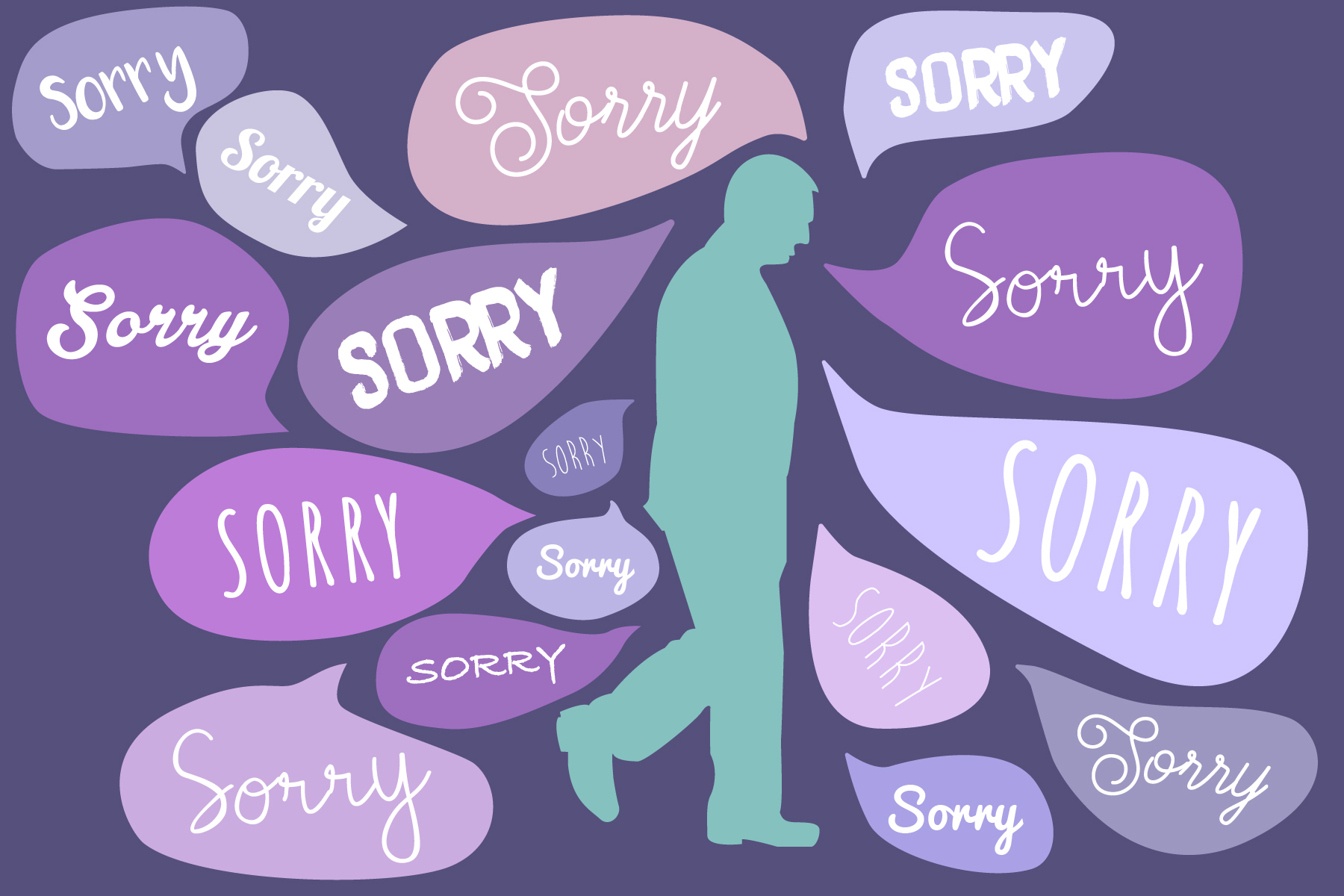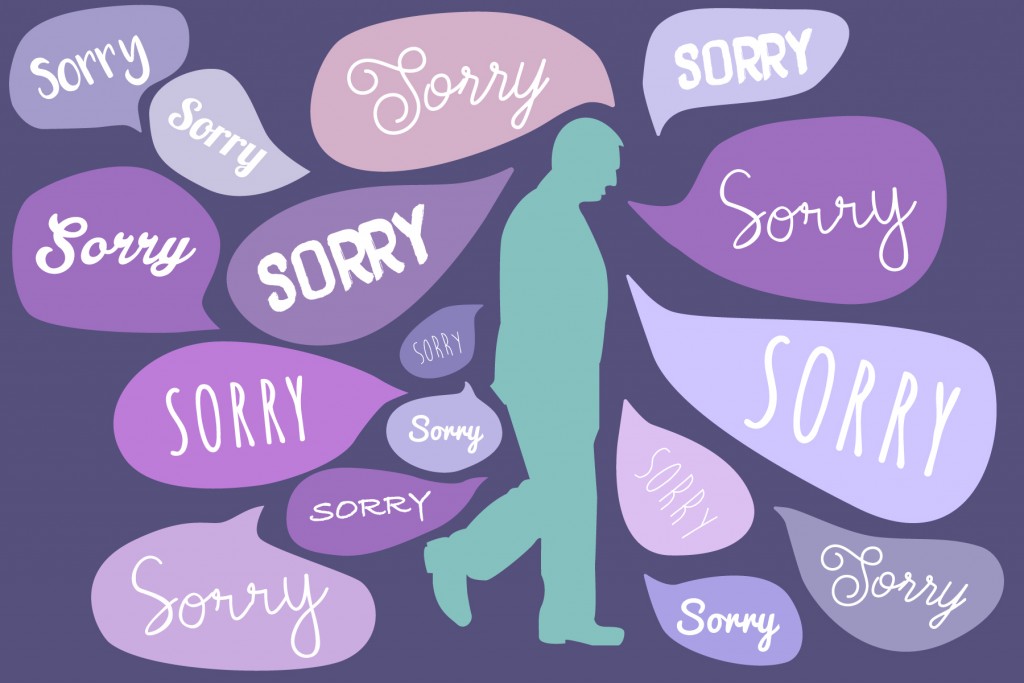I thought little of this at the time and hadn’t thought much of it for years afterward. In high school, whenever I was having an “off” day – say, I confidently answered a question wrong in calculus or was second-guessing my choice of majors in college — I could easily ignore any negative feelings by not engaging in conversation and instead closing myself off with music or my studies. This is how I dealt with difficult periods of introspection.
Now, I live with my friends. Not only that, but I study, eat and play music with them. I rely on them, and they rely on me. All at once, my world is a great deal smaller than it once was, and I often find myself apologizing whenever I’m hit with an “off” day. The funny thing is, I find them doing it too: “Sorry guys, I don’t know what’s up with me today. I woke up with a headache.” “Not feeling like going to the beach today. I’m going to take a rain check. Sorry.”
More and more, I’m noticing the tendency that people have to atone for the slightest imperfections in their attitudes and behaviors. The reason for this habit is not difficult to deduce. Striking images of airbrushed models are plastered across city buses, street corners and TV ads. High school students everywhere take part in a feverish race to matriculate to the nation’s most esteemed colleges. We are a society obsessed with perfection, which is the last thing that any developing young adult is well-versed in. One may claim that this simply highlights our society’s shrinking tolerance for mediocrity, but getting a B or experiencing self-doubt hardly translates to mediocrity. What these examples demonstrate is our society’s shrinking tolerance for the bumps and scrapes we hit while growing up and the many uncomfortable yet valuable learning opportunities that accompany such an undertaking.
Why is this a problem?
The answer is threefold.
First, conditioning ourselves to perceive imperfections — temporary illnesses, average academic performance or a body type not found on magazine covers — as detractors from one’s overall self-image places a tremendous amount of stress on us to rid ourselves of these “problems” instead of understanding and embracing them. This tendency can manifest itself in unhealthy ways and can even contribute to the development of depression and anxiety.
Secondly, in the greater context of the world, judging oneself harshly does not facilitate a greater understanding of one’s peers. If I cannot forgive myself for silly mistakes, I will always view the silly mistakes of others as more detrimental than they actually are. Expecting perfection from not only myself but everyone around me will inevitably disrupt both my personal and professional relationships with the people in my life.
Most importantly, the final consequence of our society’s intolerance for the fumbling process of growing up is that, paradoxically, it hinders one’s ability to actually grow up. Ignoring my feelings doesn’t make them disappear, and in doing so, I’ve given up an opportunity to learn what has caused them and what to do next. If I try to suppress any moments of imperfection for a lifetime, I will never change my habits, learn from my mistakes or reach my full potential.
Thankfully, there are countless ways to avoid this entire negative mentality. The first is to know that your feelings -whether of happiness, sadness or discomfort -are legitimate, and you should listen to them.
Read that sentence again. This is a most important truth. Apologizing for little things like having a headache and being quieter than usual is counterproductive; it perpetuates the belief that feeling “off” is a bad thing, while in actuality, it is an opportunity to gain better self-understanding.
Get comfortable with being a real human being. Be honest with yourself, and those around you, when you’re having an “off” day. Putting on a fake smile and apologizing for anything less than perfection only reinforces our glossy, rose-tinted expectations of each other.
So the next time that you curse yourself for walking into to class two minutes late, remember that people don’t cause disappointment, expectations do. Adjust your alarm clock and forgive yourself. Of course, adjusting your paradigm is no easy task to accomplish, and reading this article will not immediately thrust anyone into a state of eternal enlightenment. But, it may help you love yourself a little more. At the end of the day, that’s really all that each of us need.








